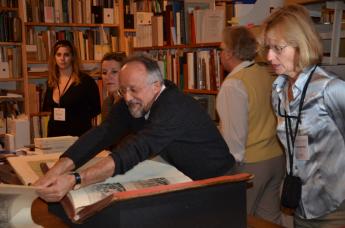Actualités Antiquarian Booksellers' Association Ash Rare Books
Luzern, Lucerne, Lucerna
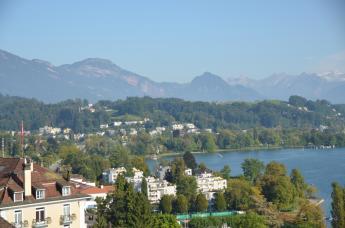
Luzern, Lucerne, Lucerna
By Laurence Worms
In Luzern, Lucerne, Lucerna – call it what you will – for the first time in some forty years. Distant memories of the picturesque old wooden Kapellbrücke (Chapel Bridge), although I somehow now prefer the shorter Spreuerbrücke (Mill Bridge)with its jaunty Dance of Death skeletons.
I also seem vaguely to recall a bit of a fracas with a hotelier who thought that 10pm in the evening was an unacceptably late hour to rouse him from his slumbers to regain admittance to his shuttered-up establishment – we were in complete disgrace and pointedly refused breakfast the next morning. Of course nothing so unseemly this time round, as the presidents of the far-flung world of the International League of Antiquarian Booksellers (ILAB) gathered for their annual meeting, to be followed by the fortieth ILAB Congress.
At least not quite so unseemly – the Russian delegation were in fact asked to leave their hotel at one point, but this, I am very reliably assured, was simply a mix-up over the booking.
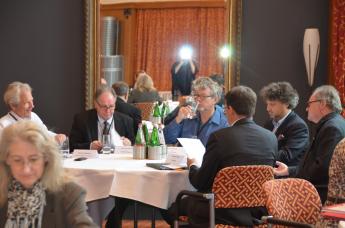
A damp and misty Sunday morning as the presidents assemble in formal session at the rather splendid Hotel Montana, perched high above the lake. I’ll probably write a full report for the ABA Newsletter – but in brief: the usual formalities – introductions, apologies, proxies, minutes, adoptions of reports, and so on – and then the presidents in turn spoke on the activities of their associations over the year. Much on the development of websites, bookfairs past and planned, and so on, with some interesting thoughts from Sally Burdon (Australia) on the Melbourne Rare Book Week – a series of free events, discussions and lectures, bringing in local libraries, universities, and guest speakers via Skype – which she estimates tripled the attendance at the Melbourne Book Fair that rounded off the week. Something to examine for ourselves, perhaps – and an instance of the potential utility of these exchanges of ideas. Discussion on this that and the other – export regulations, internships, Wikipedia entries, patrons of honour, bibliophily, the ILAB directory, security, etc. Suggestions of Seville for the 2015 Presidents’ Meeting and Budapest for the 2016 Congress and Fair. A discussion on the future of the Congresses and the associated bookfairs was led off by Paul Feain (Australia) with some interesting thoughts on moving beyond our present horizons and taking these events to the emerging markets beyond the affiliated ILAB nations – why not Hong Kong, India or Latin America? I posited our footholds of membership in Argentina, Singapore and South Africa as possible springboards, but didn’t entirely feel the enthusiasm of my counterparts. The proposed budget was accepted – a few items trimmed, but a welcome vote to spend some more money on improving still further the excellent ILAB website.
We then moved on to the secret ballot for places on the ILAB Committee – three on offer, four candidates – and adjourned for an excellent buffet lunch while the votes were counted. Somewhat weightier – I saw one dignitary have at least three desserts – we reassembled. Votes in and scrutinised – Gonzalo Fernandéz Pontes (Spain), Umberto Pregliasco (Italy) and Michel Bouvier (France), duly elected, but no place for our own Angus O’Neill (Omega Bookshop).
A result not entirely unexpected – four exceptionally strong candidates, figures with strong track records and well-known within ILAB, but I can’t help but feel that the League could have done with the calm intelligence and international experience of our best and brightest thinker.
Uncontested were the elections to high office – Tom Congalton (USA) a popular choice as the new president, likewise Norbert Donhofer (Austria) as vice-president, Paul Feain (Australia) as treasurer, and Ulrich Hobbeling (Germany) as general secretary. We pause for a top-table presentation of badges, medals and the like, with special awards to the outgoing and long-serving treasurer, Poul Jan Poulsen (Denmark) and to our own Adrian Harrington, who became a President of Honour.
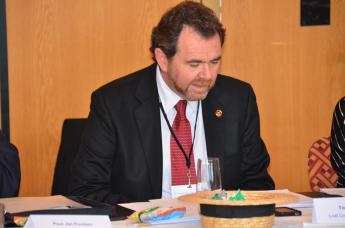
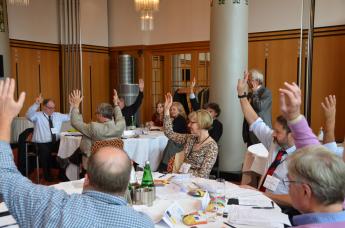
On to other business. A brief discussion of the treatment of overseas members and the nature of membership in general – the Australians looking to widen their franchise, as are we, the Americans sensibly having done it long since, although insisting that members have a financial stake in their business. The French wedded to the corporate model of membership. I know which side I’m on.
The presidents join up with the wider group attending the Congress, although beyond presidential spouses, partners, and other ILAB luminaries, there are disappointingly few booksellers signed up – their mistake, we were in for treat after treat – and a number of genuinely magical moments (see posts to come). We begin with a visit to the Glacier Garden, with its extraordinary potholes, glacier-polished rock, and random boulders of ancient granite – and then on to something called the Bourbaki Panorama.
The panorama of course has nothing to do with any of this – it’s an immense and haunting nineteenth-century painted panorama of the type we read about – an incident in the Franco-Prussian War – and a lesson in the horror of warfare, compassion, neutrality, mercy, the unifying of the Swiss cantons and the founding of the Red Cross. A week of Swissness has begun.
Feasting
First full day of the ILAB Congress. I’ll skip our Monday morning guided tour of the Zentral- und Hochschulbibliothek and our lunch at the Zunftrestaurant Pfistern, except to say that the first was a delicious and smallish feast of early books, including the extant stage directions for an early Lucerne mystery play, and the second a delicious and largish feast in a riverside guildhouse, strong on good company and good cheer.
Thus fortified, we moved on to the Sammlung Rosengart, a bank converted to a museum of modern art by the Swiss art-dealer Angela Rosengart. The ground-floor a feast of (mainly) late Picassos – no diminution of power here, the questing genius burning hard and bright into old age, the works still modern, still genuinely of their time, not merely rehearsals of an earlier mode. The act of creation itself fused into the fabric of Le Peintre (1963).
About to move on to the Paul Klee galleries downstairs – but, wait a minute, here in the room is Angela Rosengart herself, come just to talk to us. Up in years now, still beautiful, still elegant, still charming – Picasso’s dealer, Picasso’s friend, a woman painted some five times by the master himself – right here, right now. She offers us some mesmeric words on the real secret of successful dealing – Buy only with your heart, buy only as if you were buying for your own collection, deal only in pieces of your soul. So it is. Alain Moirandat, Swiss president and our host, whispers to me, “Isn’t she a gem”? No denying it – indeed she is. A presentation of flowers from Brigitta Laube (Switzerland) – a heartfelt thank-you for a moment of pure magic.
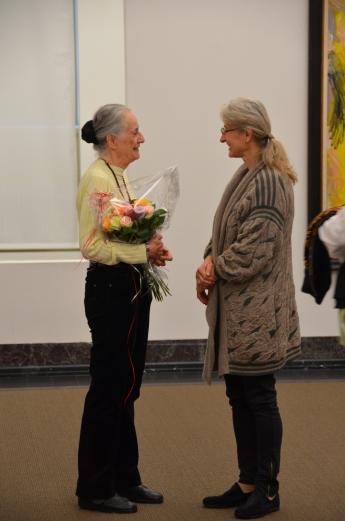
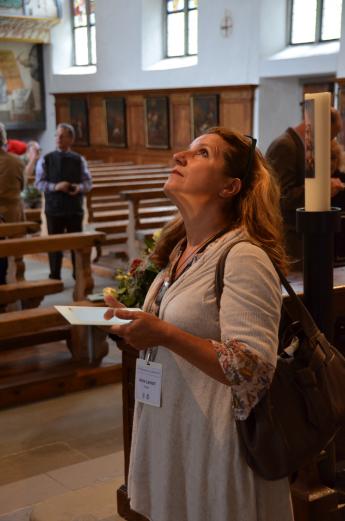
I resolve to drop out of the coach-trip to a country church and stay on and thoroughly explore the remainder of this extraordinary museum. A quiet word to that effect to the splendid Christina Maurer, our organiser-in-chief. But, wait, here is Alain again with another quiet aside – another surprise ahead, another moment of magic in store. Do come. A quick mental rearrangement of my plans and I realise I can readily come back to the Rosengart before I fly home on Thursday, which I do. And what a feast it was – Klee prismatic, Klee chromatic, Klee mosaic, Klee unshowy, Klee subtle, Klee with fish, Klee early and scratchy – and beyond that, some fine Georges Braque and Henri Matisse, a delicious Modigliani Cariatide, Joan Miró with the exquisite tissue-of-the-universe Danseuse II, a marvellous Kandinsky (Formes Multiples, 1936), Fernand Léger, Maurice Utrillo, Claude Monet, Paul Cézanne, Pierre Auguste Renoir, Pierre Bonnard, a wonderful Edouard Vuillard (Jardin des Tuileries, 1894), Camille Pissarro, an adorable Georges Seurat (Étude pour une Baignade, 1883-4), only perhaps a slightly insipid Raoul Dufy that I did not covet – and so many more that I did. This not to mention the other Picassos upstairs, the Rosengart portraits and lithographs, photographs of the great man, photographs of Angela Rosengart sitting for Picasso, etc. And beyond all that, the Chagalls – Le Peintre au Travail (1949) inscribed as a souvenir for Angela Rosengart, others inscribed to her, an original Chagall birthday card for her – and here framed up on the wall is Chagall’s palette from 1958. Extraordinary. It couldn’t conceivably belong to any other painter – colour, texture, intensity, it’s pure Chagall.
Meanwhile, the coach-trip to a country church. Of course, not just any church, but the seventeenth-century pilgrimage church of Hergiswald, high in the hills above Lucerne. Plainish in exterior, rich in interior, highest of baroque. Freshly restored, all gilt and lustrous. A ceiling of emblems and Latin tags. Magnificent – and still the surprise to come. Aloft in the gallery, Alain has secretly assembled an international group of top-notch musicians based in Basel – organ, violas da gamba, and a sweet and illustrious soprano. They treat us to three pieces of virtually unknown and long-lost baroque music – and here, in this place, it’s quite, quite, perfect. Audience rapt. Encore. Encore. We feast once more.
Thank you, Alain – both for laying on a superlative day and for persuading me not to miss this final magic.
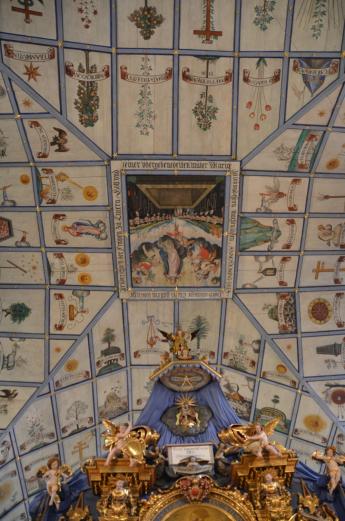
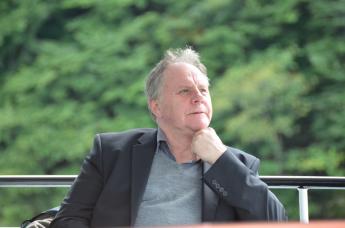
Swissness
Weather improves – we are in luck for our Tuesday afloat on Lake Lucerne. Assemble on the quay in sunshine, board, and sail away. Coffee and croissants. Splendid. Disembark to ascend Mount Pilatus on a sheer, gravity-defying, cog-wheel railway. Views. Air. Lunch at 7,000 feet in the hotel at the top. Booksellers on top form. Down the mountain again. Back on board.
We slot in the ILAB Open General Assembly in mid-afternoon. No substantial business, no awkward questions, everyone content. Pause for the top-table to repeat the badge and medal-giving thing. Disembark at Vitznau. Another mountain railway, heading up Mount Rigi. Pleasant, relaxed – but now, but now, it gets a little weird.
Train stops in the middle of nowhere. We are ushered off onto a woodland path apparently going still further into nowhere. What on earth? We eventually emerge into a Swiss meadow – cows, bells, views – essence of Switzerland – half expect Julie Andrews and the Von Trapps to appear. That doesn’t happen, but somewhat improbably, there’s a table in the field set up with drinks and glasses. Well, we are booksellers after all – they don’t last long. I assume it’s going to be back to the train to continue on to wherever we were going, but no – we are directed still further into the woods. Begin to suspect we are about to be taken hostage – but why and by whom?
Round a corner – and, my, oh my – a spectacular waterfall. But not just a waterfall – there’s a cave behind it and we can see coloured lights. Essence of fairytale. Essence of folklore. And within the prehistoric cave, tables set up and laid for dinner. That man Alain Moirandat, whom I’m beginning to suspect of a latent theatricality of character, has done it again. Complete and utter surprise. Powerful magic. A wonderful and entirely Swiss supper by candlelight. Top yodellers to entertain us.
But I’m not at all sure that allowing the booksellers to play with crossbows inside the cave was altogether a good idea (there are always liable to be some mild political tensions on these occasions). And some of us had clearly been practising.
Alain Marchiset made mincemeat of the postcard size target – don’t mess with the French. A passing thought of Agincourt and the superiority of the English longbow fluttered improperly, inappropriately and wholly unbidden into mind (and was firmly left unvoiced). Fabrizio Govi (Italy) no slouch with the crossbow either. Mental note to review ABA policy on target practice. Meanwhile, I concentrated on the desserts.
Very jolly evening. Tramp back through the woods. Train takes us back to the boat – and a moonlight cruise back to Lucerne. Share a glass of wine or two with Ádám Bősze, the Hungarian president, and others.
Because although it may sound as if I’m simply having a good time (which I certainly am), the cement that binds these events together is the numerous individual conversations we have with each other, the ripening of friendships, the building of trust and understanding. Conversations with Barbara Werner van Benthem, the ILAB website editor, and the pooling of ideas and material there. With Ádám Bősze, who specialises in music, and introduces a morning programme on the Hungarian equivalent of Radio 3. He gives me a hugely entertaining account of his covering the Hungarian broadcast of the Last Night of the Proms (what on earth do they make of that in Hungary)?
We talk of fairs and congresses and how to attract people to Budapest. He’s making a video of the Congress for the ILAB website, so you can check on the veracity my scattered recollections. And I’m charmed to discover that he too has taken to blogging on WordPress (link in the Blogroll) – and, yes, it is in Hungarian, but the Google translation renders it hilarious. He’s also a great admirer of the ABA Newsletter, which I discover all the overseas presidents receive – and almost all thoroughly enjoy. (Some of them appear to know more about ABA affairs than I do). Just wish we had something like that, was the consensus.
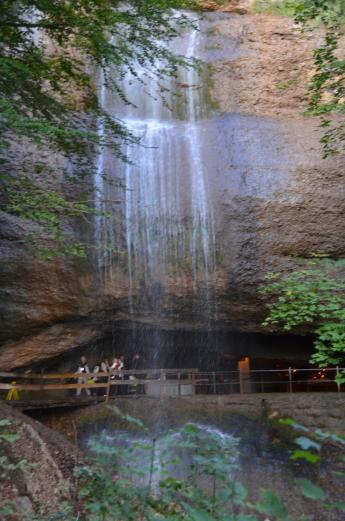
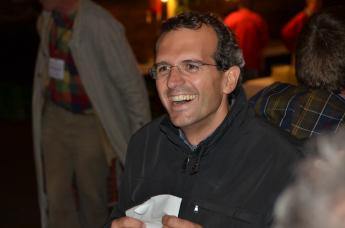
Conversations with Sally Burdon (Australia), fast becoming a firm friend, and we have already been exchanging ideas over the last twelve months. With Tom Congalton, incoming ILAB President, of course. With Norbert Donhofer (Austria) on the internship programme. With Paul Feain too, the new ILAB treasurer – the ILAB bank account is being switched to London – and if we want an ILAB Fair in Hong Kong, he’s our man. He’s going to investigate India too. With young Zoltán Földvári (Hungary), whom I sat next to at the farewell dinner – now there’s a bright young bookseller. Marcus Benz (Switzerland), stalwart of the Zurich fair was to my right. Conversations with Maria Girsel, the Danish president.
With Fabrizio Govi, the Italian president – sat between him and John Hellebrand (USA) at lunch one day – and between us set the world to rights. Book-trade past and book-trade present.
With Christian Hesse, the German president – a stroll though Lucerne with him. Ulrich Hobbeling (also Germany) is still, I suspect, more or less persuaded that I am a sworn foe of the whole ILAB idea – can’t imagine why he thinks that. Complacency is the enemy, not honest questioning and a desire to make things better – but we get along well enough for all that. Conversation with Ton Kok, the Dutch president, on the delicate matter of an ongoing and rather fierce dispute between a Dutch dealer and an English-based one – just the sort of situation where ILAB could and should help resolve things. What it’s for.
Conversations with Anne Lamort, French president – now faced with eighteen months’ of intense preparation for the Paris Congress and Fair in 2014, to celebrate the French association’s centenary. Good luck with that. With the delightful Professor Olga Tarakanova of the Moscow State University of the Printing Arts, who currently heads the fledgling Russian association – only a handful as members as yet (and almost all of them women). She seizes me by the lapels to emphasise how very, very, pleased she is to meet me (Lord knows what they’ve told her) – and we talk of internships and the Russian book-trade.
She is accompanied by the equally delightful Alena Lavrenova, pioneering intern and an old friend from Weimar last year. Both plainly enjoying themselves and forging links with the wider book world. With Alain Marchiset on our differing approaches to membership. With Liam and Candice McGahern (Canada) – good people. Discussions on trade, auctions, internet, with a couple of American dealers who have made the trip, Bruce McKittrick and Jeremy Norman – both enjoying themselves, both asking interesting questions, both with an offbeat style. With John Thomson, enjoying his first Presidents’ Meeting on behalf of the USA. Another lunchtime companion was Bhawa Nand Uniyal, an Indian journalist and collector – quite fascinating on the book-trade in India.
This is my fourth Congress – I know, understand, approve and believe in their function and purpose. But my message to the assembled presidents was that we in the ABA have been pursuing a policy of trying to reconnect with our wider membership – it can’t all be about top booksellers, top prices, top fairs. It is our roots that need nourishment and support.
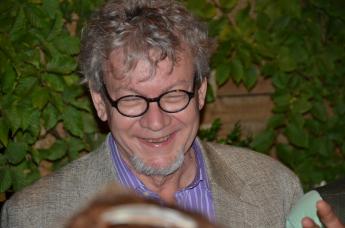
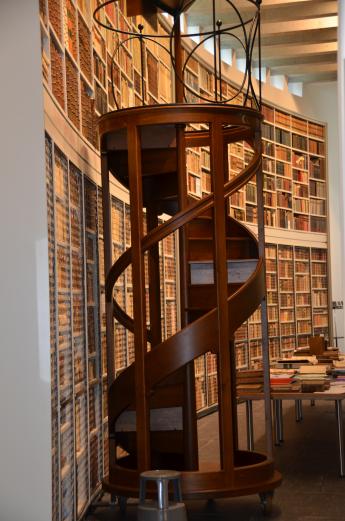
Dr Oechslin
Off to Einsiedeln early on Wednesday – to see the magnificent abbey and its library of course, but for half the group the day began with a visit to the Werner Oechslin Library Foundation, also in Einsiedeln. No particular thoughts on what to expect, although people who build libraries in their back-gardens are always going to be interesting and a little unusual.
Werner Oechslin is a retired Professor of Art and Architectural History, with wide experience of the universities of the United States, Germany and Italy, as well as Switzerland. Also a book collector on a very large scale. (Who was it who told me earlier in the week that academics didn’t buy books?) His collection of some 50,000 books has now metamorphosed from private library to public institution – an exquisite research library, the new building designed around his ideas in conjunction with the Swiss architect, Mario Botta.
The insistence is on the primacy of the original editions, the not always recognised sine qua non of serious research. Only just out of hospital, Dr Oechslin was there to greet us, talk to us, and insist on this point – pulling out books to demonstrate in immediate and obvious ways just how you could be misled by not looking at the original edition. He charms us too, by saying that he has learnt far more from booksellers’ catalogues than from many an academic text. But it was when he said something like, “Do you know, there are still people who believe in digitisation”, that I began to realise that here was an exceptional mind. Every rare book librarian in the world should be made to go and sit at his feet. That goes for booksellers too.
Not just the first editions, but the seconds, thirds, fourths and lifetime editions – what author has ever completed a book without realising that something has been left out, something needs modifying, something needs refining? The second thoughts can be more valuable than the first.
The books begin in art and especially architecture, but spill over into the science, philosophy, logic, history and mathematics of five centuries. The governing principle is one of the connectivity of knowledge, the interdependence of all the disciplines – the revelation of contexts – and beyond that the science of method and order – the organisation of information. There are limits to the amount we can absorb in one lifetime – how do we arrange the most useful parameters of what we need? The theory of libraries itself is here put under examination. The placement of the books itself a form of knowledge. The physicality of the books and the physicality of the library themselves a form of meaning.
An organisation adopted that harks back to the mnemonic and associative theories of the ancients. A division between precision and practice – the known knowns – on straight shelves, and the imprecise and the struggling towards order on gently curving ones. All here is symbol and metaphor, the individual and the whole. The library steps a Trojan Horse. The library literally at the crossroads of the Germanic and Latin worlds, bridging the pathway of the pilgrims’ route to Santiago de Compostela. The real path a metaphor for the conceptual one.
The man fizzes with ideas, spilling out in the never-ending spiral so aptly etched into the floor. I seldom make notes, but here they become illegible – too much, too fast. Here’s a man I could listen to for hours. Ended all too soon.
Somewhat breathless, we adjourn for another lunch. Fabrizio Govi and Alain Moirandat reminisce over the first books they sold Werner. Two hard-headed Americans speculate on the value of the collection – interestingly coming up with precisely the same figure.
And then the baroque magnificence of the abbey. We pass first through the monastery school where Werner Oechslin was educated. Tour of the library, exhibition of maps and plans. Tour of the abbey – the Black Madonna. A restful and undemanding afternoon. Coach back to Lucerne to prepare for the farewell dinner. Not sure I can actually eat any more – one last push.
Back to the Hotel Montana high above Lucerne. Plain and simple fare. Some of you like details of these things. A wasabi risotto with roasted scallop and a topping of ginger (and strangely pink) foam is one course I’ll not easily forget – nor will my waistline, such as it is. Pause while the top table do the badge and medal thing again – this time with addition of some large plaques.
Final words from our genial and so engaging host, Alain Moirandat, who then leads off the dancing at dervish pace. A presentation to the company of some Swiss chocolate (mine got ‘mislaid’ – I have my suspicions) and a Victorinox peeler (Swiss design classic ) apiece. But a relatively early night – most of the company heading for the Zurich Bookfair early in the morning.
A grand few days. Sincere and heartfelt thanks to our Swiss hosts. A superb programme.
Post on The President on Safari, the blog of ABA President Laurence Worms. Presented here by permission of the author.
